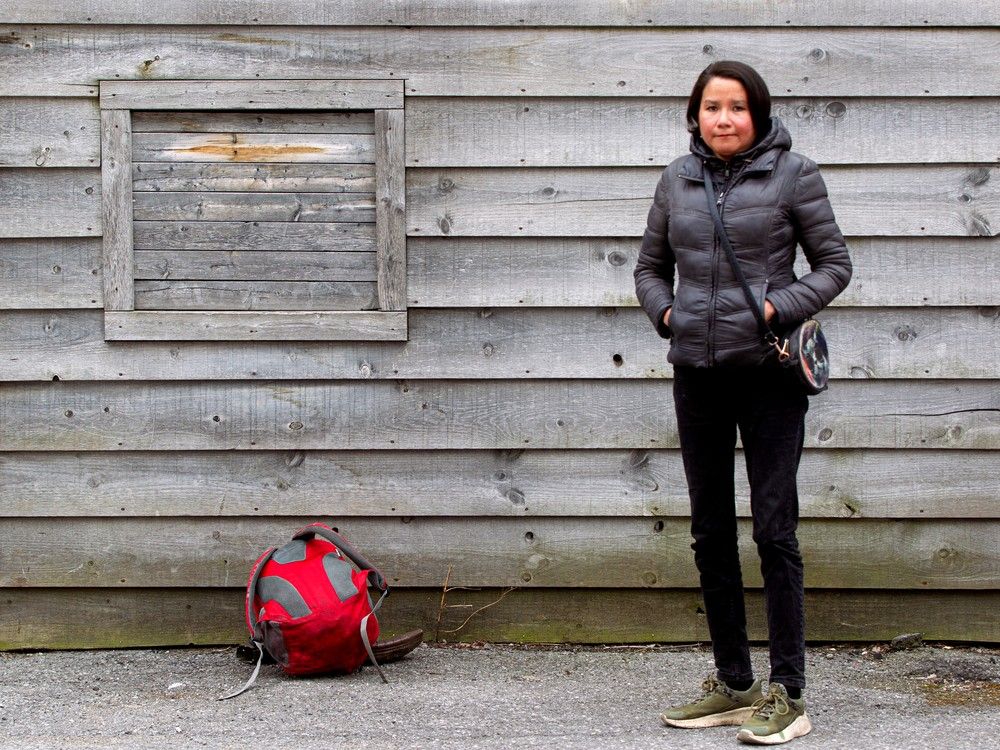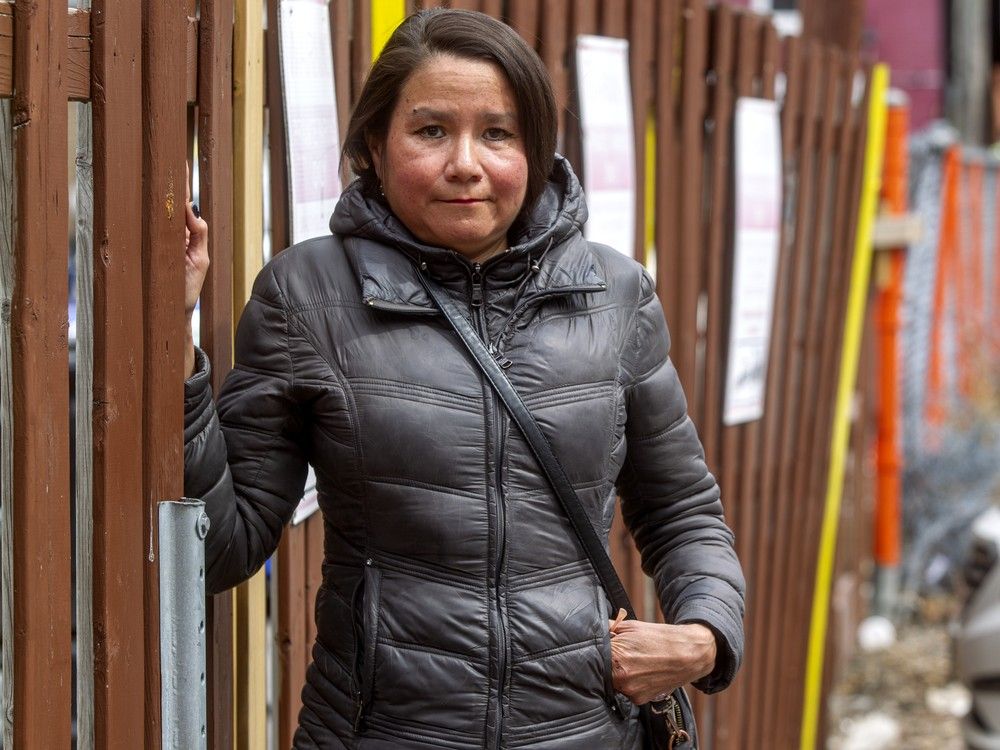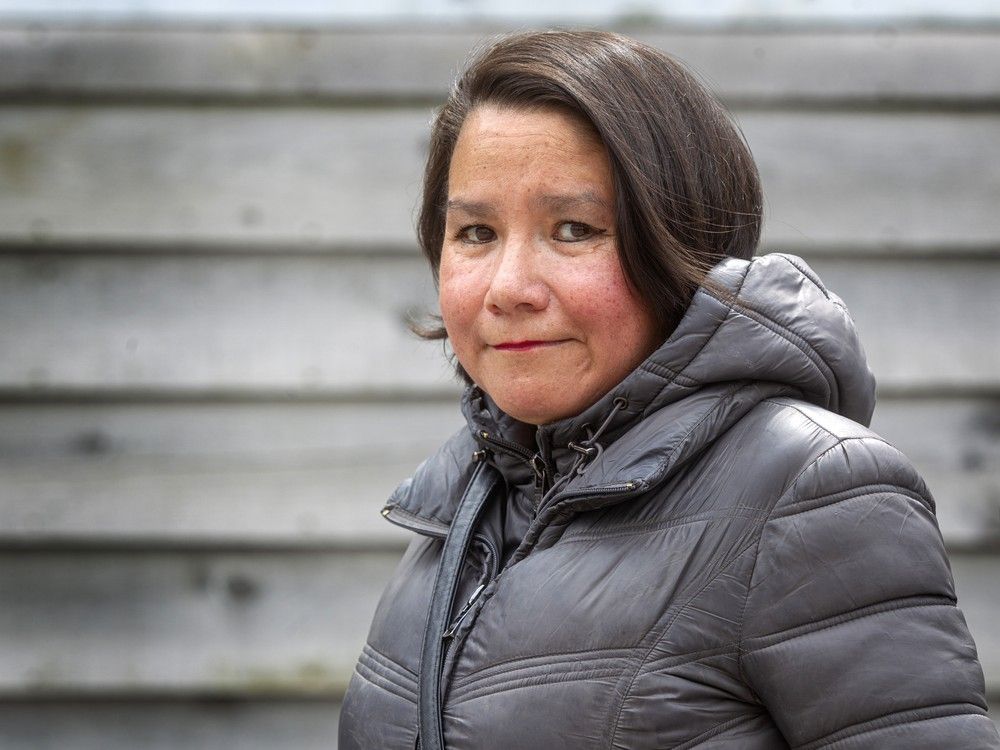After I had spoken with her and taken her photograph, Lisa Palmer gave me her phone number, in case I needed to talk with her again. But I’d have to wait another week or so to reach her that way, she explained: she typically hawks her cellphone on the 10th of every month, when, because she can’t pay her $25 phone bill, the service is cut off.
She gets $40 for the phone, which she spends on groceries and other necessities. At the end of the month, when her
Ontario Works
benefit of just under $400 comes in, she pays $55 to the pawn shop to get her phone back, as well as the $25 owing to get the service reconnected.
Add to that the $115 she pays for her
Ottawa Community Housing
apartment in Vanier and the $58 that her monthly OC Transpo EquiPass, and she’s left with about $145 to try to navigate her way through the rest of the month: $185, I suppose, if you factor in the $40 she’ll get after pawning her phone again.
It’s been three years since Palmer was laid off from her warehouse job at a uniform supply company, and she’s since applied for about 100 jobs each year since, she says, but so far without success.
Her days are further hardened by the abuse she receives — every day, she says — from strangers who disparage her for being Cree.

Meanwhile, she augments her meagre income by collecting cans and bottles from recycling bins, which she does two or three times a week, earning as “much” as $15 or $20 in a three-hour outing. On her best day ever, in Gatineau, she collected $60 worth of recyclables.
At 53, though, there’s a physical toll to be paid for this kind of work, and so she’s less inclined these days to collect bottles, which are much heavier than cans. Further complicating the salvage business, she says, is that there’s more competition than ever, more people resorting to such means to make ends meet.
She was at
The Ottawa Mission
on Easter Monday when we met, enjoying a holiday turkey dinner. Hers was one of a record-high 17,600 Easter dinners served by The Mission this year — in the dining room of its Daly Avenue shelter, through its food truck program, and via the catering it does for other social agencies. That figure is another indication of the increasing number of Ottawans who, like Palmer, are struggling.
If the number isn’t staggering enough on its own, one needs simply to open The Mission’s latest report,
Still Waiting: Enough is Enough
, to any page. Recently released, it’s not simply some summary of the good The Mission does. Rather, it’s an exhausting compendium of unmet needs in this city, a cry for help from a social agency that, like so many of its kind, has for years been operating well above capacity and is now drowning in the demand for its services, lost in the ever-widening chasm between what it has the resources to do and what needs to be done.
Homelessness? Up 25 per cent in Ontario since 2022, to more than 80,000 people, a total that may double over the next decade without significant intervention. In Ottawa, the number of homeless people has increased 13 per cent since 2021, to almost 3,000 people.
Food security? One in four Ottawa households is food-insecure — meaning they’re unable to acquire or consume an adequate diet, either in quality or quantity. It is often linked to a household’s financial inability to access adequate food. The average cost of healthy food and shelter in Ottawa is 20 to 25 per cent more than people receive through disability support payments. According to
Ottawa Public Health
, the cost for a single person to eat healthy in Ottawa is $435 a month, more than Palmer earns. Meanwhile, monthly visits to food banks in Canada eclipsed the two-million mark last year, the highest ever and a 90 per cent increase over 2019.
Additionally, The Mission’s food truck program, introduced in 2020, has grown from one truck serving 500 meals a week at five stops, to two trucks serving 10,000 meals a week at almost 40 stops. Overall, The Mission is on pace to serve a record 1.3 million meals this year.
The report also catalogues the inadequate responses from all levels of government, and makes recommendations, including reintroducing rent controls, supplying municipal land at no cost for not-for-profit housing providers, and having better plans in place to accommodate refugees and asylum seekers.
Despite only being 24 pages long, the report is relentless and difficult to digest in its entirety; its numbers form a distressing, yet almost impenetrable, wall of unaddressed need. I asked Aileen Leo, The Mission’s director of communications and author of the report, if it was written out of anger.
“Yes,” she replied, “anger and frustration.”
Yet it’s an important read, because it is a stark reminder that if we don’t do more to address these social failings, they will only worsen. It’s tempting to say that this should not be the state of affairs in the capital of a G7 country, but the truth is that this should not be the state of affairs anywhere.

And things are already worsening, says Palmer. She relies on services of four organizations — The Mission,
St. Joe’s Women’s Centre
,
Wabano Centre
for Indigenous Health and
The Well
— to provide her food, safety and company. But the meals are getting smaller, she says, the food cupboards more barren.
“There’s hardly any food at St. Joe’s food cupboard anymore, so I don’t go anymore,” she says. “I used to get milk and eggs there, but now there’s so many new people coming in, there’s less and less.”
Despite these setbacks, Palmer doesn’t want to imagine a life without agencies such as these. “I’d be collecting cans and getting ramen noodles at the Dollar Tree — three packages for a dollar. And that’s no way to live — no protein, no nutrition, no nothing. I’d probably lose 110 pounds, and I need to gain some weight and get stronger so I can work in a warehouse again.
“This is a struggle,” she adds, “but we all have to hang in there and show respect for one another.”
She and I only spoke for about 40 minutes before she had to move on. She wanted to get to Alta Vista to collect more cans. As I walked away, I turned to see her scoop up an empty beer can from the sidewalk and put it in her knapsack.
Maybe today will be a better day.
Related
- Deachman: Westboro bus-crash inquest is filling in important details
- Here’s how it feels to be homeless at Christmas



